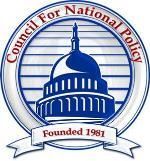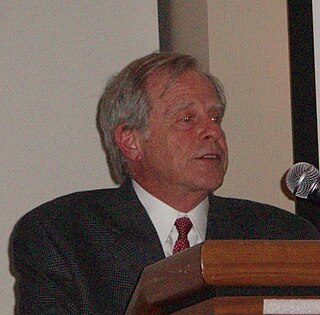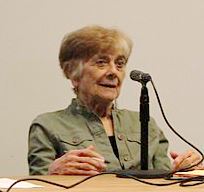Related Research Articles
The American Library Association (ALA) is a nonprofit organization based in the United States that promotes libraries and library education internationally. It is the oldest and largest library association in the world, with 49,727 members as of 2021.
The Revolutionary Conservative Caucus was a small, right-wing pressure group which attempted to introduce a new radicalism into British conservatism.

The American Sociological Association (ASA) is a non-profit organization dedicated to advancing the discipline and profession of sociology. Founded in December 1905 as the American Sociological Society at Johns Hopkins University by a group of fifty people, the first president of the association would be Lester Frank Ward. Today, most of its members work in academia, while around 20 percent of them work in government, business, or non-profit organizations.

The American Political Science Association (APSA) is a professional association of political science students and scholars in the United States. Founded in 1903 in the Tilton Memorial Library of Tulane University in New Orleans, it publishes four academic journals: American Political Science Review, Perspectives on Politics, Journal of Political Science Education, and PS: Political Science & Politics. APSA Organized Sections publish or are associated with 15 additional journals.

The Medical Library Association (MLA) is a nonprofit educational organization with more than 3,400 health sciences information professional members.

The Council for National Policy (CNP) is an umbrella organization and networking group for conservative and Republican activists in the United States. It was launched in 1981 during the Reagan administration by Tim LaHaye and the Christian right, to "bring more focus and force to conservative advocacy". The membership list for September 2020 was later leaked, showing that members included prominent Republicans and conservatives, wealthy entrepreneurs, and media proprietors, together with anti-abortion and anti-Islamic extremists. Members are instructed not to reveal their membership or even name the group.

The American Educational Research Association is a professional organization representing education researchers in the United States and around the world. AERA's mission is to advance knowledge about education and promote the use of research in educational practice.

Theodore J. "Ted" Lowi was an American political scientist. He was the John L. Senior Professor of American Institutions teaching in the Government Department at Cornell University. His area of research was the American government and public policy. He was a member of the core faculty of the Cornell Institute for Public Affairs.

The California Native Plant Society (CNPS) is a California environmental non-profit organization that seeks to increase understanding of California's native flora and to preserve it for future generations. The mission of CNPS is to conserve California native plants and their natural habitats, and increase understanding, appreciation, and horticultural use of native plants throughout the entire state and California Floristic Province.
Rogers M. Smith is an American political scientist and author noted for his research and writing on American constitutional and political development and political thought, with a focus on issues of citizenship and racial, gender, and class inequalities. His work identifying multiple, competing traditions of national identity including “liberalism, republicanism, and ascriptive forms of Americanism” has been described as "groundbreaking." Smith is the Christopher H. Browne Distinguished Professor of Political Science at the University of Pennsylvania. He was the president of the American Political Science Association (APSA) for 2018–2019.

Pi Sigma Alpha, the National Political Science Honor Society, is the only honor society for college and university students of political and social sciences in the United States. Its purpose is to recognize and promote high academic achievement in the field of political science. It is a member of the Association of College Honor Societies (ACHS) and adheres to all the standards set by ACHS for an upper-division, specialized honor society. Pi Sigma Alpha is not a social fraternity or club.

The American Public Health Association (APHA) is a Washington, D.C.-based professional membership and advocacy organization for public health professionals in the United States. APHA is the largest professional organization of public health professionals in the United States and host the largest gathering of public health professionals in the world at their annual meeting and exhibition.

The American Psychoanalytic Association (APsA) is an association of psychoanalysts in the United States. APsaA serves as a scientific and professional organization with a focus on education, research, and membership development.
The American Association of Biological Anthropologists (AABA) is an international group based in the United States which affirms itself as a professional society of biological anthropologists. The organization publishes the American Journal of Biological Anthropology, a peer-reviewed science journal. It was formerly the American Association of Physical Anthropologists (AAPA), but changed its name after a series of votes between 2018 and 2020.

Frances Fox Piven is an American professor of political science and sociology at The Graduate Center, City University of New York, where she has taught since 1982.

The American Physician Scientists Association (APSA) is dedicated to career development and community building among physician-scientists in training.
Matthew Stark was a noted civil rights activist in Minneapolis, Minnesota, and Lee County, Florida. Stark was born to a Jewish family in Brooklyn, New York. He graduated from Ohio University in 1951 with a Bachelor of Arts degree in English and a Bachelor of Science degree in education. He graduated from the University of Minnesota in 1959 with a master's degree in Educational Psychology. Stark received his Ph.D. in Educational Administration and Counseling in June, 1963 from Case Western Reserve University. He was dean of students at Moorhead State University 1962–63. He was assistant professor and coordinator of human relations programs at the University of Minnesota, 1963–1970.
Lisa García Bedolla is an American political scientist and scholar of Latino studies, currently the Vice Provost for Graduate Studies and Dean of the Graduate Division at the University of California, Berkeley, and a professor in the UC Berkeley Graduate School of Education. García Bedolla studies political inequalities, political participation, and Latino political engagement and mobilization in the United States.

Dara Strolovitch is an American political scientist, currently Professor of Women's Gender, and Sexuality Studies, American Studies, and Political Science at Yale University. She studies the politics of race, class, gender, and sexuality in the context of intersectional societal inequality, and the representation of those who are marginalized in multiple overlapping ways.
David Broockman is an American political scientist. He is an associate professor of Political Science at the University of California, Berkeley. He is best known for his research on political polarization, political persuasion, and reducing prejudice toward transgender people and undocumented immigrants, which has been widely covered in the national and international press.
References
- ↑ "APSA Membership". American Political Science Association. Retrieved 28 July 2011.
- ↑ "Organized Section Membership Counts". American Political Science Association. Retrieved 28 July 2011.
- ↑ Franck, Matthew J. "Political Science and the Big Uneasy: On gay marriage, it's political". National Review. Retrieved 20 July 2011.
- ↑ Franck, Matthew J. "Political Science and the Big Uneasy: On gay marriage, it's political". National Review. Retrieved 20 July 2011.
- ↑ "APSA Membership". American Political Science Association. Retrieved 28 July 2011.
- ↑ Barrow, Clyde W. (2008). "The Intellectual Origins of New Political Science". New Political Science. 30 (2): 215–244, 223. doi:10.1080/07393140802082598. S2CID 143821090.
- ↑ Ibid. : 223.
{{cite journal}}: Cite journal requires|journal=(help); Missing or empty|title=(help) - ↑ Ibid. : 226.
{{cite journal}}: Cite journal requires|journal=(help); Missing or empty|title=(help) - ↑ Ibid. : 237–238.
{{cite journal}}: Cite journal requires|journal=(help); Missing or empty|title=(help) - ↑ Franck, Matthew J. "Political Science and the Big Uneasy: On gay marriage, it's political". National Review . Retrieved 20 July 2011.
- ↑ "Past Annual Meetings". American Political Science Association. Retrieved 20 July 2011.
- ↑ Barrow. : 238.
{{cite journal}}: Cite journal requires|journal=(help); Missing or empty|title=(help) - ↑ Ibid. : 238.
{{cite journal}}: Cite journal requires|journal=(help); Missing or empty|title=(help) - ↑ Ehrenberg, John (1999). "History of the Caucus for a New Political Science". New Political Science. 21 (3): 417–420. doi:10.1080/07393149908429881.
- ↑ Ibid. : 419.
{{cite journal}}: Cite journal requires|journal=(help); Missing or empty|title=(help) - ↑ Davis, Linda. "Awards". New Political Science. Retrieved 6 July 2011.